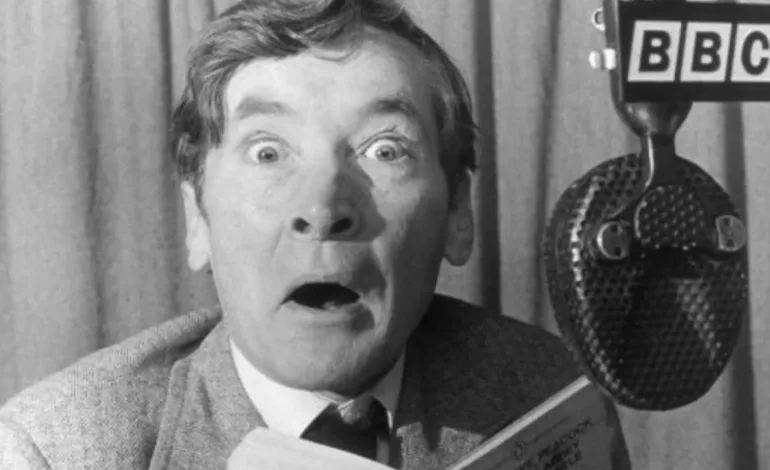In the grand theatre of linguistic evolution, Polari emerges not as a mere historical artifact but as a vivid emblem of the LGBTQ+ community’s enduring spirit. From its murky inception in the shadowed alleys of early 20th-century Britain, Polari became a beacon of defiance and solidarity, a coded lexicon crafted under the harsh glare of societal repression. This was no mere assortment of slang; it was a lifeline, a covert means of communication for a world where the mere hint of one’s true self could lead to dire consequences. With its eclectic blend of Italian, Romani, Cockney rhyming slang, and British English, Polari served as both shield and sanctuary, allowing its users to navigate a hostile landscape with remarkable panache.
Polari’s origins are steeped in a unique linguistic alchemy. It emerged out of necessity, a quilt of words enabling LGBTQ+ individuals to converse about their identities and desires without courting unwanted scrutiny. More than a survival tool, Polari was a sophisticated form of discourse, a way to speak openly about one’s private life in a public sphere that was often unforgiving. The charm of Polari lies in its playful vocabulary—terms like “bona,” signifying something or someone attractive, “varda,” meaning to look, and “lallies,” a cheeky term for legs. These words were not mere euphemisms but reflections of a community that, despite adversity, embraced life with a flourish of style and humor. The term “camp,” for example, transcends mere theatricality to embody a flamboyant, almost defiant embrace of personal expression.
Yet, Polari’s legacy extends far beyond its own lexicon. It represents a broader tradition of LGBTQ+ slang, each term encapsulating various facets of the community’s experiences and struggles. From the once-derogatory “fruit” to the reclaimed “pansy,” these words are emblematic of the ever-evolving nature of LGBTQ+ identity and resilience. They mirror a dynamic interplay between societal rejection and internal solidarity, showcasing how language can serve as both weapon and refuge.
Though Polari may no longer grace everyday conversation with the frequency it once did, it remains a poignant artifact of cultural history. It stands as a testament to the ingenuity and defiance of a community that refused to be silenced. In modern media and academic circles, Polari is not merely a historical curiosity but a vibrant symbol of LGBTQ+ heritage. It graces exhibitions and scholarly discussions, a living reminder of how marginalized voices carved out a space for themselves against overwhelming odds.
In today’s world, as LGBTQ+ slang increasingly permeates mainstream culture, there exists a delicate tension between retaining the original, nuanced meanings of these terms and their broader, more generic applications. Words like “fabulous” and “shade,” once deeply embedded in LGBTQ+ vernacular, risk losing their distinctiveness as they become part of everyday language. This transition underscores the challenge of balancing community pride with the inevitable broadening of cultural influence, preserving the richness of LGBTQ+ expressions even as they gain widespread popularity.
Polari’s origins, with their rich blend of Romani, Italian, and Cockney influences, highlight a broader trend of linguistic creativity within marginalized communities. It was not just a means of survival but a subtle form of subversion against societal norms. Its popularity, buoyed by British entertainment like Round the Horne and its memorable characters, Julian and Sandy, introduced Polari to a wider audience. This comedic yet respectful portrayal preserved the essence of Polari while illuminating its historical significance.
Polari was more than a language; it was a foundation for community and solidarity. It allowed LGBTQ+ individuals to create a shared identity and communicate in ways that were both private and affirming. It was a testament to their ability to reclaim power and assert their identity in a society that often sought to marginalize or erase them. Recent revivals of Polari underscore its ongoing relevance, highlighting its contribution to LGBTQ+ cultural heritage.
As social media continues to shape the evolution of LGBTQ+ slang, new terms emerge, perpetuating the tradition of linguistic innovation and community-building. While these contemporary terms may lack Polari’s historical weight, they continue the legacy of creativity and self-expression that Polari exemplified. In a world where LGBTQ+ language is increasingly mainstream, the challenge remains to preserve the depth and context of these expressions while celebrating their expanded reach.
In sum, Polari’s influence on LGBTQ+ culture and media extends far beyond its historical roots, permeating drag performance, literature, and global queer vernacular. Its revival and continued study underscore its enduring significance, while personal anecdotes and historical contexts enrich our understanding of its role in shaping queer identity and expression. Polari remains a vibrant testament to the resilience and creativity of the LGBTQ+ community, a language that continues to inspire and inform even as it evolves and adapts.
